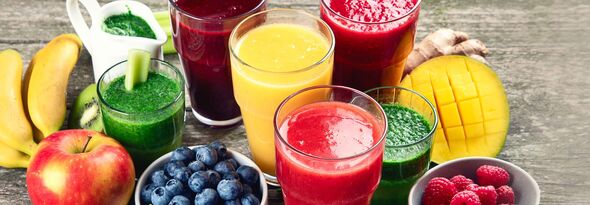Health
Health Experts Warn: Smoothies May Not Be the Nutritional Powerhouse You Think

Recent insights from health professionals reveal that smoothies, often considered a healthy dietary choice, may not deliver the nutritional benefits many assume. The British Heart Foundation (BHF) emphasizes that while smoothies may contain wholesome ingredients, they do not provide the same advantages as consuming whole, unblended fruits and vegetables.
One significant issue with smoothies arises when fruit is blended. The process breaks down cell walls, releasing natural sugars that transform into what are known as “free sugars.” These free sugars behave similarly to added sugars found in processed foods and beverages, and excessive consumption can lead to weight gain.
Understanding Nutritional Impact
Homemade smoothies can offer a healthier alternative, typically containing less sugar and more fiber than their commercially available counterparts. For those interested in making their own, combining a source of protein—such as Greek yoghurt, nut butters, or protein powder—with fruits, greens, and a liquid base, like milk or water, is recommended.
Dietitian Jordan Spivak from Sibley Memorial Hospital notes that while fruits contain carbohydrates that may influence blood sugar levels, personalized nutrition advice is essential. “It is best to consult with a dietitian on what carbohydrate amounts are best for your personalized nutrition needs,” Spivak advises.
Portion sizes are crucial as well. The BHF suggests a serving size of 150ml, yet many smoothies sold in stores or cafes exceed this recommendation. This larger serving size can make it challenging to monitor intake, as smoothies are less satiating than whole fruits due to their lower fiber content.
Portion Control and Recommendations
To adhere to the recommended serving size, consider sharing a smoothie or saving part of it for later. Although the idea of blending multiple fruits and vegetables may seem like an effective way to achieve the five-a-day goal, this is misleading. According to the NHS, a single 150ml glass of smoothie counts as only one portion of fruits and vegetables, regardless of how many varieties are included.
The BHF provides clear guidance on the best beverage choices. Water ranks as the healthiest option, followed by hot drinks like tea or coffee without sugar, and sugar-free colas and squashes. In contrast, beverages to avoid include ice cream milkshakes, hot chocolates, and energy drinks. The BHF highlights that a regular ice cream milkshake can contain twice the calories of a similar-sized full-sugar cola, and adding extras like chocolate or biscuits can significantly increase calorie counts.
As consumers increasingly turn to smoothies for their perceived health benefits, awareness of their nutritional content and appropriate portion sizes is vital. Making informed choices about beverages can support healthier dietary habits and ultimately contribute to overall well-being.
-

 World3 days ago
World3 days agoCoronation Street’s Shocking Murder Twist Reveals Family Secrets
-

 Entertainment4 months ago
Entertainment4 months agoKate Garraway Sells £2 Million Home Amid Financial Struggles
-

 Entertainment3 months ago
Entertainment3 months agoAnn Ming Reflects on ITV’s ‘I Fought the Law’ Drama
-

 Health3 months ago
Health3 months agoKatie Price Faces New Health Concerns After Cancer Symptoms Resurface
-

 Entertainment3 weeks ago
Entertainment3 weeks agoCoronation Street Fans React as Todd Faces Heartbreaking Choice
-

 World4 weeks ago
World4 weeks agoBailey Announces Heartbreaking Split from Rebecca After Reunion
-

 Entertainment6 days ago
Entertainment6 days agoTwo Stars Evicted from I’m A Celebrity Just Days Before Finale
-

 World6 days ago
World6 days agoKevin Sinfield Exceeds Fundraising Goal Ahead of Final Marathons
-

 Entertainment3 months ago
Entertainment3 months agoCoronation Street’s Carl Webster Faces Trouble with New Affairs
-

 Entertainment3 months ago
Entertainment3 months agoWhere is Tinder Swindler Simon Leviev? Latest Updates Revealed
-

 Entertainment4 months ago
Entertainment4 months agoMarkiplier Addresses AI Controversy During Livestream Response
-

 Science2 months ago
Science2 months agoBrian Cox Addresses Claims of Alien Probe in 3I/ATLAS Discovery





















